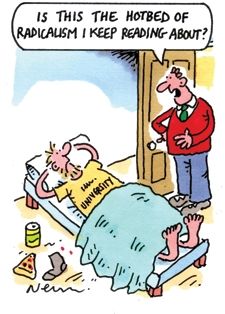
• Two academics planning an anti-monarchy mock execution outside Westminster Abbey were arrested ahead of last week's royal wedding. Chris Knight, a former professor of anthropology at the University of East London, was arrested along with his partner, Camilla Power, a senior lecturer in anthropology at UEL, on suspicion of conspiracy to cause public nuisance and breach of the peace. Dr Knight, a member of the protest group Government of the Dead, was sacked by UEL in 2009 after claims that he incited violence at the G20 protests. Video footage of the arrest on 28 April shows Dr Knight telling police officers: "You're arresting a professor of anthropology that runs a street theatre group."
• Most academics aspire to win research grants or promotion - so becoming the "first non-'reincarnated' lama to lead Tibet" is a little out of the ordinary. Lobsang Sangay, a senior research Fellow in the East Asian Legal Studies Program at Harvard University, was elected Tibet's political leader in exile following the Dalai Lama's decision to retire, it was reported on 28 April. He is expected to share the post of Kalon Tripa with the Karmapa Lama, who will replace the 75-year-old Dalai Lama as spiritual leader following his death. The switch from dealing with Harvard management to dealing with the Chinese Communist Party may be something of a culture change.
• UK universities were called "hotbeds" of Islamic extremism in the right-wing press after a parliamentary group criticised the sector's approach to student radicalisation. The All-Party Parliamentary Group on Homeland Security cited "grave concerns" that students were being radicalised on campus. "Although they have been aware of the problem for many years, university authorities are reluctant to combat it because they fear a decline in the number of foreign students, from whom they make millions of pounds every year, it has been claimed", said the Daily Mail on 28 April. Nicola Dandridge, chief executive of Universities UK, said: "The experts, including police and counter-terrorism experts, state quite firmly that there is not a major problem with radicalisation or extremism in higher education at present."
• There was more press flak, this time from the Left, over universities' links to repressive Middle East governments. The University of St Andrews is to review the work of its Centre for Syrian Studies, whose funding came via Bashar al-Assad's regime, The Guardian reported on 28 April. The newspaper said St Andrews had received funding of more than £100,000 for the centre with the assistance of Sami Khiyami, Syria's ambassador to the UK. In a letter to the newspaper on 30 April, reader Keith Burd accused it of "absurd" reductionism in its attitude to universities' links with unsavoury regimes. "Scholarly...relations...have long predated, and will outlast, both their temporary tyrannies and convenient, selective and self-serving western condemnation of them," he said.
• As most universities in the West count their pennies, an Australian institution has hit the jackpot thanks to Pablo Picasso and an anonymous donor. An unnamed US philanthropist donated Picasso's Jeune Fille Endormie to the University of Sydney last year on the condition that it be sold and the proceeds invested in research. The painting is expected to sell for as much as £12 million when it is auctioned at Christie's in London, it was reported on April.
• England's "hyper-adversarial political culture" is to blame for the "tragedy" of the university funding reforms, according to a professor of higher education. Peter Scott, professor at the Institute of Education and former vice-chancellor of Kingston University, said that while David Willetts, the universities minister, and John Denham, the Labour shadow business secretary, were "both perfectly reasonable people" with similar policy objectives, they were both "prisoners" of the system. "Until that culture changes, the agony will continue for higher education", he said on 3 May. Reflecting on the Browne Review, Professor Scott also criticised politicians' obsession with "short-sharp committees, chaired by businessmen 'resting' between corporate cock-ups".
Register to continue
Why register?
- Registration is free and only takes a moment
- Once registered, you can read 3 articles a month
- Sign up for our newsletter
Subscribe
Or subscribe for unlimited access to:
- Unlimited access to news, views, insights & reviews
- Digital editions
- Digital access to THE’s university and college rankings analysis
Already registered or a current subscriber?